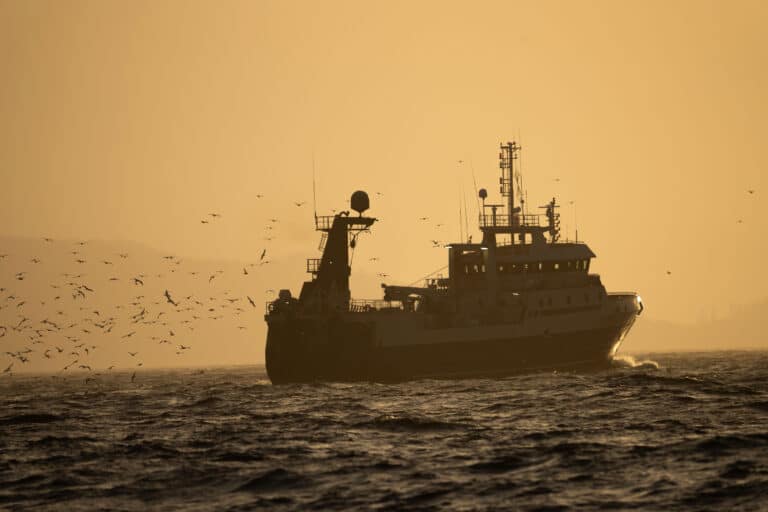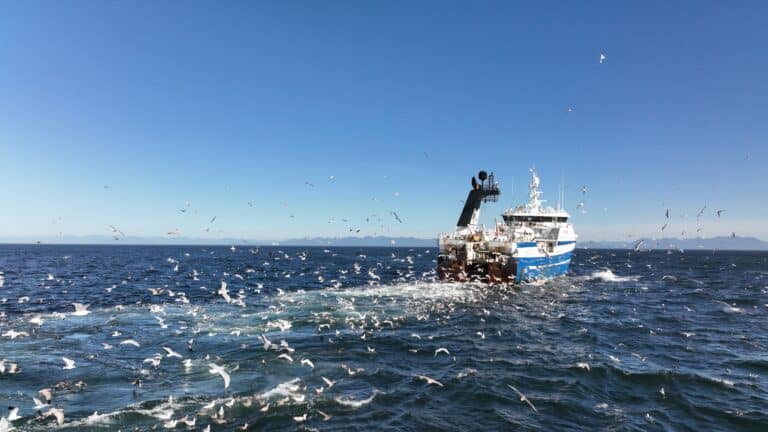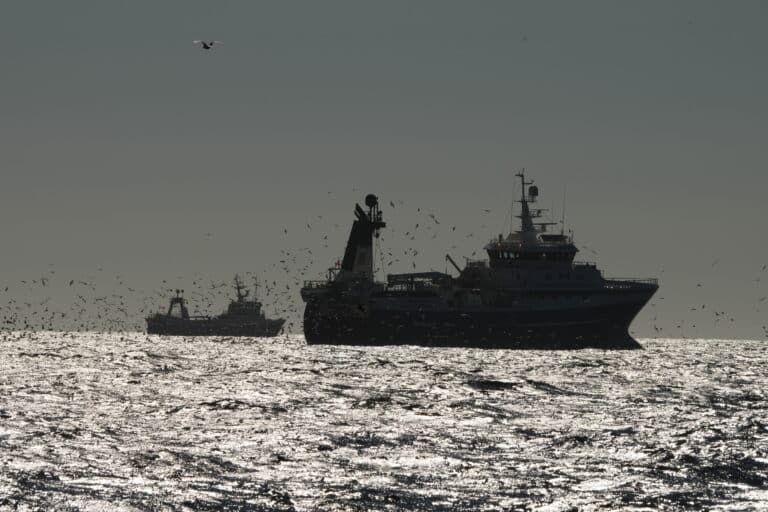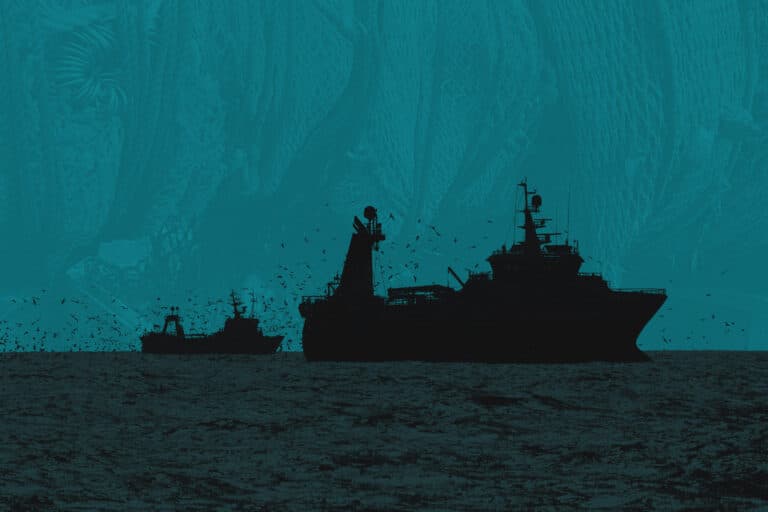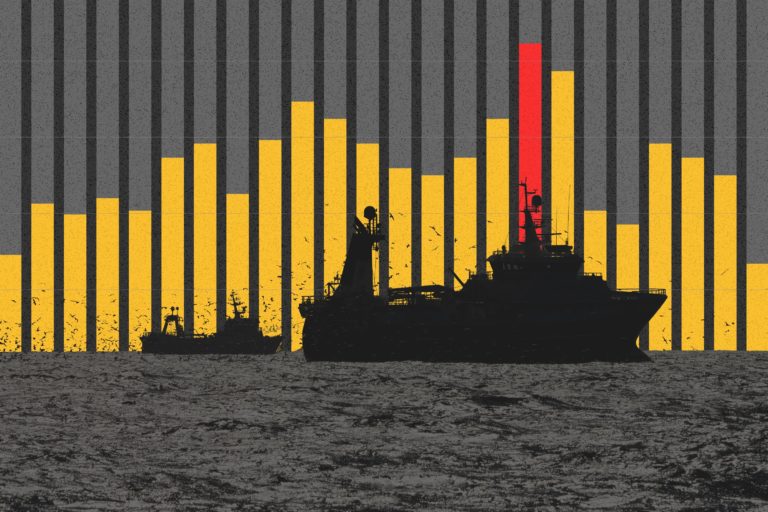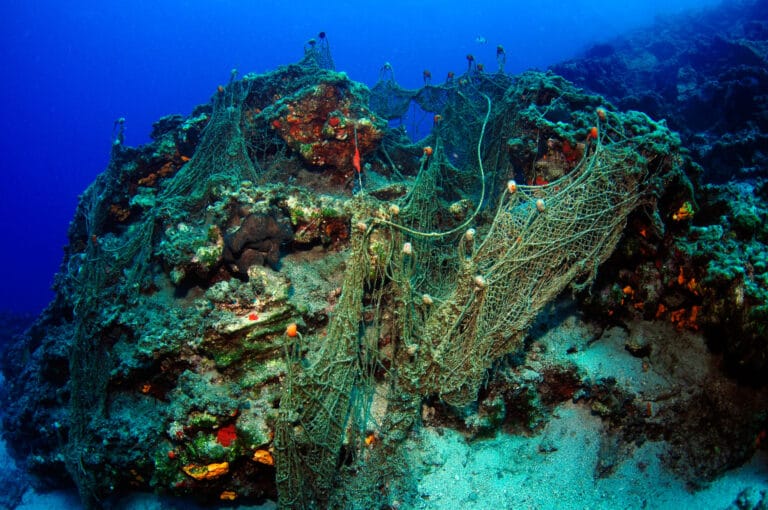Bottom trawls are especially susceptible to becoming ghost gear due to the immense size and weight of the net once it is full. While fisheries exploitation has skyrocketed alongside the industrial revolution, there has been an uptick in abandoned, discarded and lost fishing gear. This gear continues to “fish” without being harvested while the lost nets contribute to marine plastic pollution.

Every year, up to 30% of harvestable fish are caught in ghost gear, a threat to livelihoods and food security.

Globally it is estimated that between 600k-800k metric tonnes of ghost gear enter the oceans on an annual basis. That's about 7x the weight of the CN Tower.
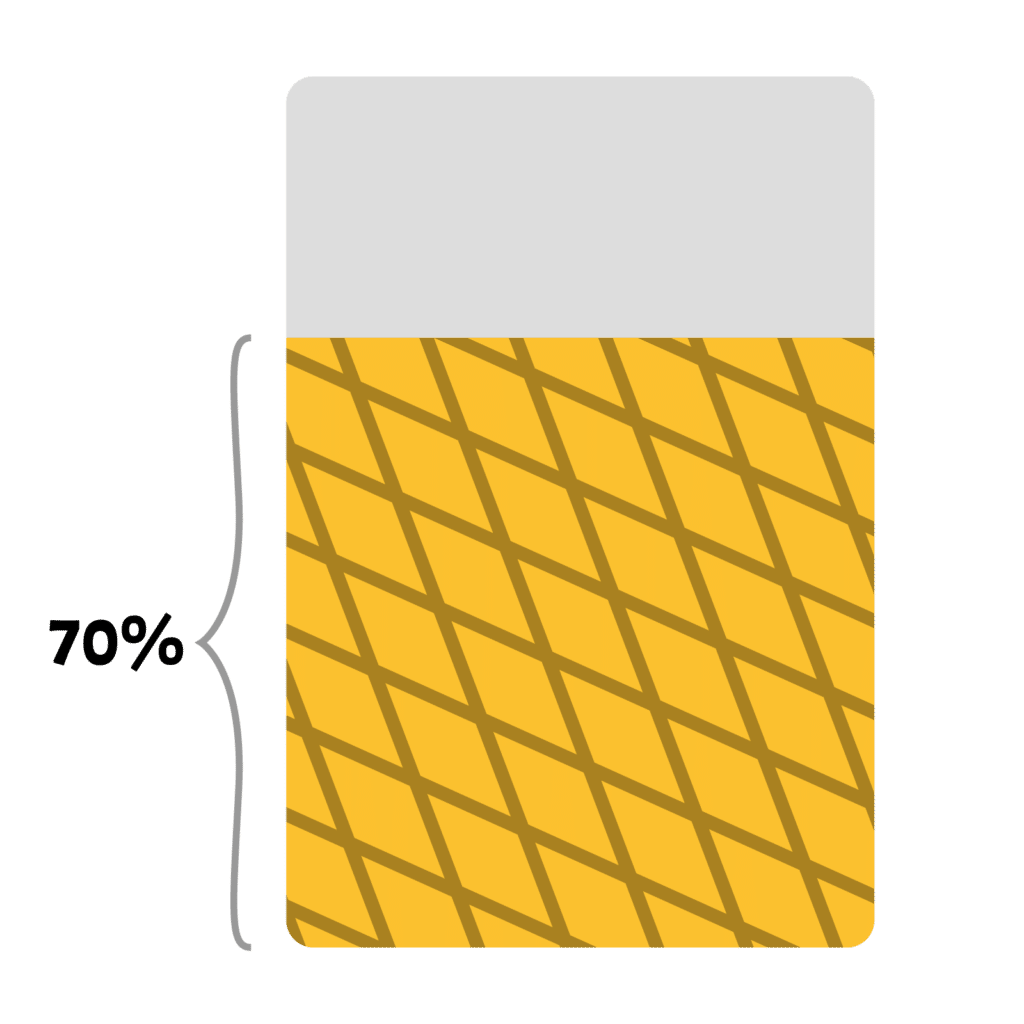
Ghost gear makes up 70% of ocean macro-plastics by weight. This gear will also further break down into microplastics.
Source: Fisheries and Oceans Canada
Possible Solutions to Ghost Gear
A proven method to mitigate the loss of trawls and the resulting ghost gear is to redesign the gear and use new biodegradable rope materials. A study published in Animal Conservation highlighted some promising tests using polybutylene-based materials for net construction. These new materials are not yet competitive with typical nets, but with more research and testing, these biodegradable nets could become a new reality.
Arguably, the best solution is to encourage fishers to recycle their worn nets rather than discarding them at sea. Buy-back programs are also an option to mitigate this problem — fishers can return their degrading nets for a small return. This economic incentive has been implemented successfully with fishers in South Korea.
The largest challenge facing fisheries technology today is mitigating the adverse effects of fishing gear types on the environment while fisheries continue in a sustainable manner. The goal of technological development in fishing gear is to allow for specific target species to be caught without adverse impacts on others. While we move towards ecosystem-based management of fisheries and the eventual banning of bottom trawls, technological developments in gear need to advance to limit the impacts of ghost gear.
